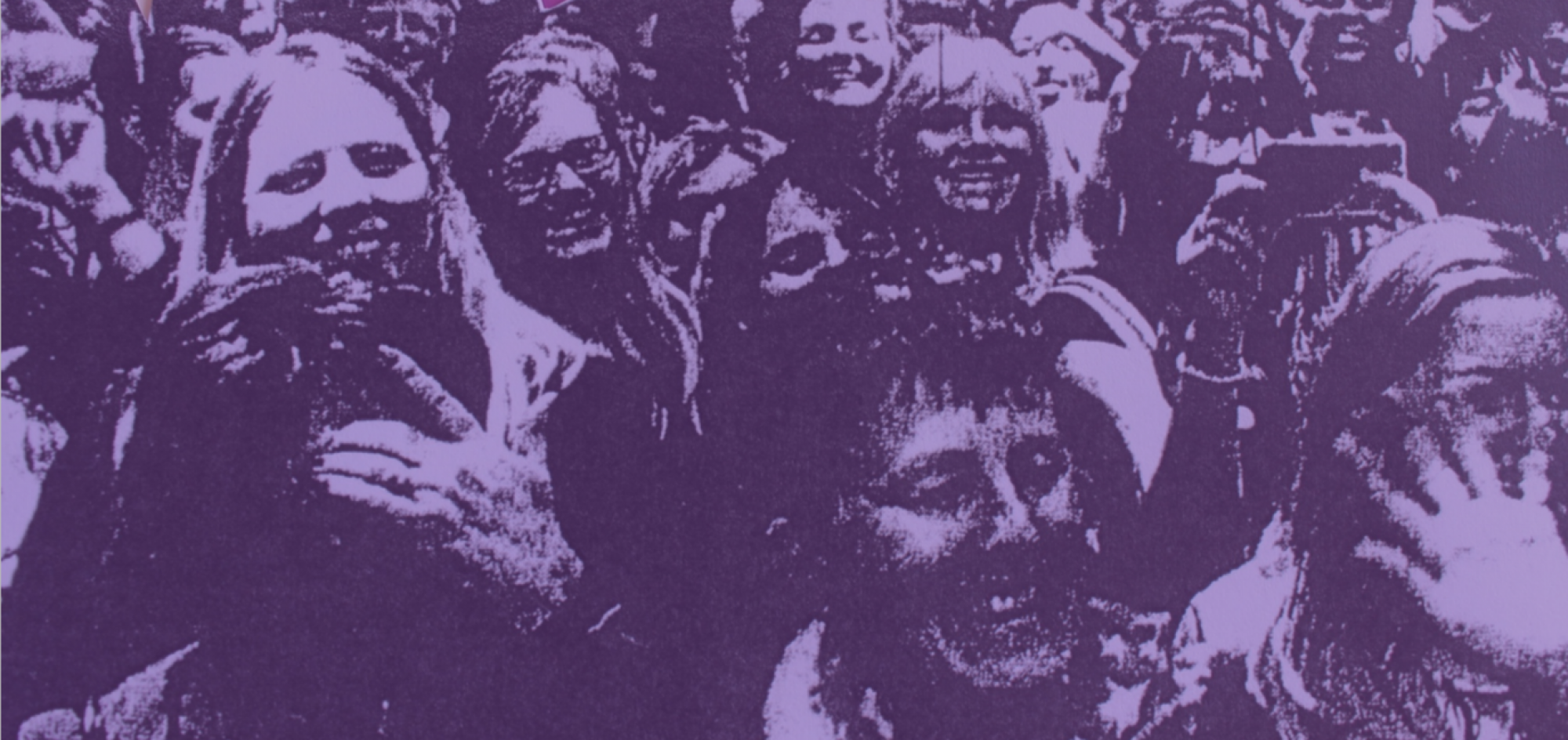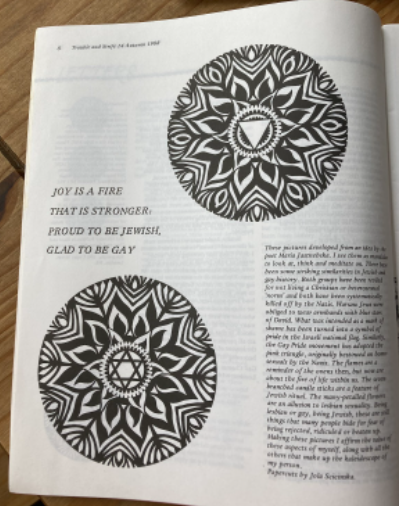One of our archive volunteers tells us a little more about what has been discovered in the collection over the last few months for the new Rooms Of Our Own project.
‘I have been archiving feminist magazines within the museum’s collection from 1980s and 1990s. It has been fascinating to dive into them and see the variety of content they cover.
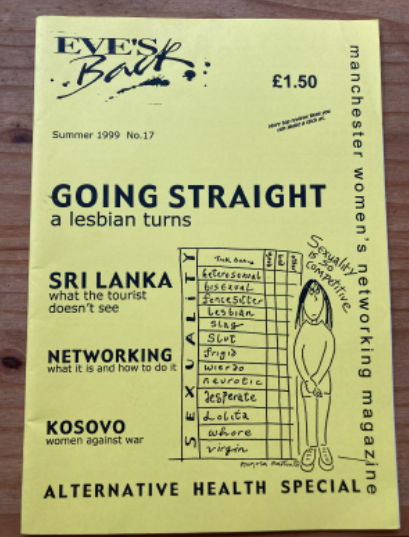 There are hard-hitting political articles calling for an end to gender based violence, exploring queer liberation, critiquing exclusionary ideologies and expressing solidarity with Palestine. I recognise struggles still ongoing within the words on these pages. It’s frustrating that these fights have been happening for so long and still remain, but I also feel connected to their political struggles and inspired by their work. I was surprised and elated to see how deeply engrained queerness is throughout. Instead of stigma towards lesbians and queer women at the a time of intense societal homophobia of Section 28 and fearmongering surrounding the AIDS epidemic, these voices were at the forefront and celebrated. These magazines are examples of truly radical feminism centred around the liberation of all.
There are hard-hitting political articles calling for an end to gender based violence, exploring queer liberation, critiquing exclusionary ideologies and expressing solidarity with Palestine. I recognise struggles still ongoing within the words on these pages. It’s frustrating that these fights have been happening for so long and still remain, but I also feel connected to their political struggles and inspired by their work. I was surprised and elated to see how deeply engrained queerness is throughout. Instead of stigma towards lesbians and queer women at the a time of intense societal homophobia of Section 28 and fearmongering surrounding the AIDS epidemic, these voices were at the forefront and celebrated. These magazines are examples of truly radical feminism centred around the liberation of all.
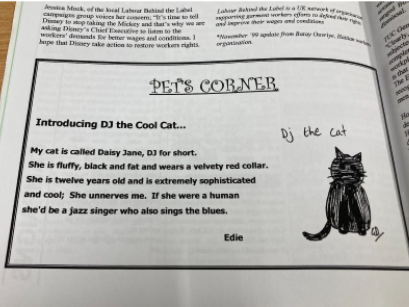 These magazines contain far more than political articles. There is also art, poetry, jokes, and my personal favourite: pet’s corner. Light hearted anecdotes and serious discussions, high brow art reviews to comical sketches; they encapsulate the multifaceted nature of feminism and the women behind it. They were also an opportunity for women to have a voice on important issues by writing letters to be published raising the issues that mattered to them.
These magazines contain far more than political articles. There is also art, poetry, jokes, and my personal favourite: pet’s corner. Light hearted anecdotes and serious discussions, high brow art reviews to comical sketches; they encapsulate the multifaceted nature of feminism and the women behind it. They were also an opportunity for women to have a voice on important issues by writing letters to be published raising the issues that mattered to them.
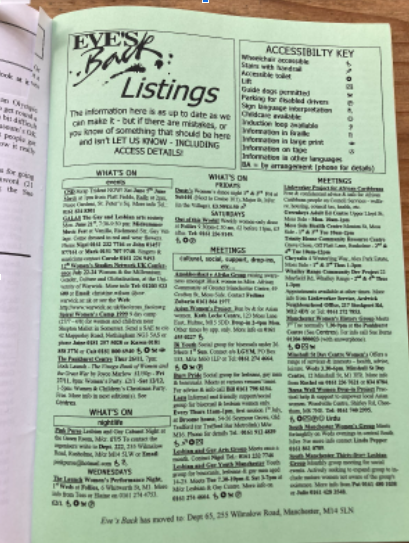
Another element of the magazines that interests me is the listings of events happening in Manchester. There are support groups, art classes, social events, political meetings and so much more. A double page spread showcasing a strong network of support and care across Manchester, with many events taking place at The Pankhurst Centre itself, and catered towards marginalised women. This is the kind of work that still takes place here at the centre through Manchester Women’s Aid. Much of the events advertised are outwardly lesbian or queer and it is incredible to see the type of things I would go to today happening 20 and 30 years ago, reminding me of Manchester’s rich queer history.
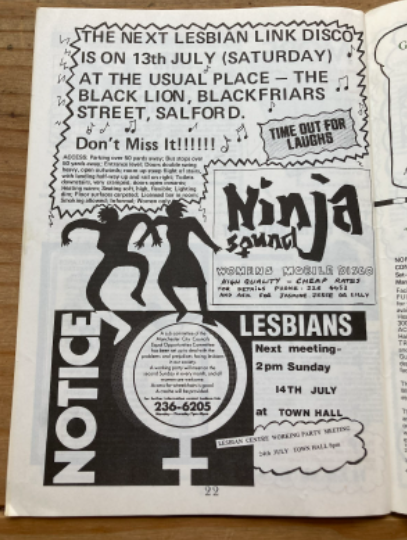
For me, these works from grassroot organisations of radical feminists perfectly embody the spirit of The Pankhurst Centre. From the very first meeting of the Women’s Social and Political Union that took place within these walls, to the women who relentlessly campaigned to save the building from demolition in the 1970s, the important work carried out by the centre today supporting vulnerable women across Manchester and telling the story of a key historical period for women’s rights, and hopefully beyond into the future.’
